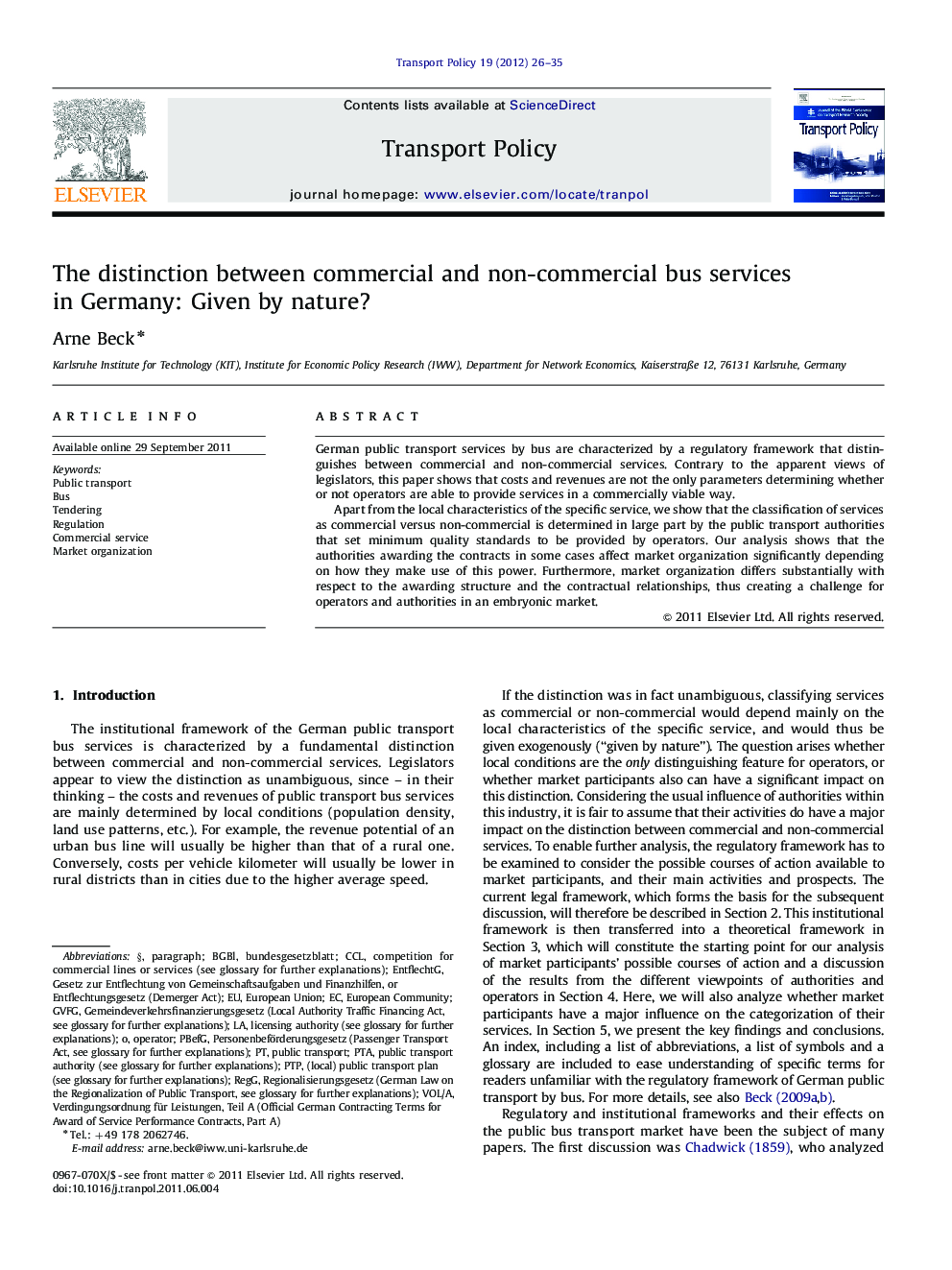| Article ID | Journal | Published Year | Pages | File Type |
|---|---|---|---|---|
| 1065145 | Transport Policy | 2012 | 10 Pages |
German public transport services by bus are characterized by a regulatory framework that distinguishes between commercial and non-commercial services. Contrary to the apparent views of legislators, this paper shows that costs and revenues are not the only parameters determining whether or not operators are able to provide services in a commercially viable way.Apart from the local characteristics of the specific service, we show that the classification of services as commercial versus non-commercial is determined in large part by the public transport authorities that set minimum quality standards to be provided by operators. Our analysis shows that the authorities awarding the contracts in some cases affect market organization significantly depending on how they make use of this power. Furthermore, market organization differs substantially with respect to the awarding structure and the contractual relationships, thus creating a challenge for operators and authorities in an embryonic market.
► We analyze the regulatory framework for German public transport services by bus. ► This framework distinguishes between commercial and non-commercial services. ► We show that the classification of services is determined by the authorities. ► Market organization differs substantially with respect to the awarding structure. ► This creates a challenge for operators and authorities in an embryonic market.
